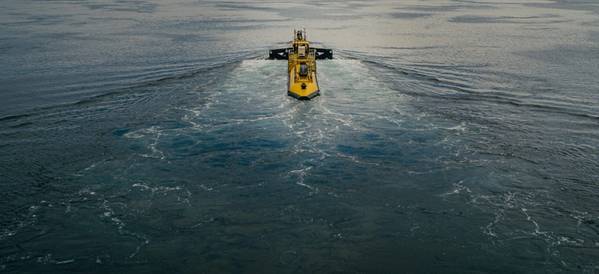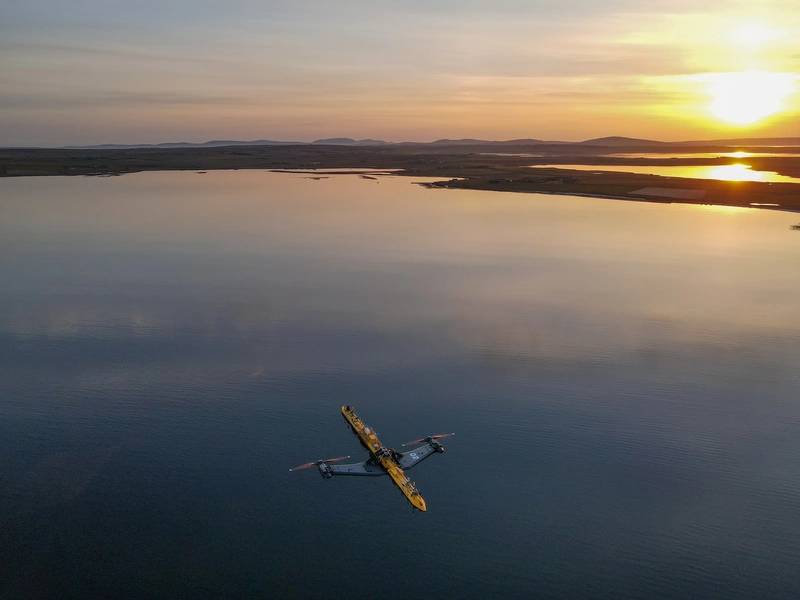
O2, dubbed the world's most powerful tidal turbine, and built by the Scottish engineering firm Orbital Marine, has this week started power generation at the European Marine Energy Centre (EMEC) in Orkney.
The floating turbine is anchored in the Fall of Warness where a subsea cable connects the 2MW offshore unit to the local onshore electricity network.
Built and launched in Dundee earlier in the year before being towed up to Orkney, the O2 is Orbital’s first commercial turbine and, according to the company, represents the culmination of more than 15 years of product development in the UK.
The 74m long turbine is expected to operate in the waters off Orkney for the next 15 years with the capacity to meet the annual electricity demand of around 2,000 UK homes "with clean, predictable power from the fast-flowing waters."
What is more, tidal turbine will provide power to EMEC’s onshore electrolyzer to generate green hydrogen that will be used to demonstrate decarbonization of wider energy requirements. Credit: Orbital Marine
Credit: Orbital Marine
Orbital CEO, Andrew Scott, said: “This is a major milestone for the O2 and I would like to commend the whole team at Orbital and our supply chain for delivering this pioneering renewable energy project safely and successfully. Our vision is that this project is the trigger to the harnessing of tidal stream resources around the world to play a role in tackling climate change whilst creating a new, low-carbon industrial sector.”
The construction of the O2 turbine was enabled by public lenders through the ethical investment platform, Abundance Investment, as well as being supported by the Scottish Government by the Saltire Tidal Energy Challenge Fund. The O2 project has been supported through funding from the European Union’s Horizon 2020 research and innovation program under the FloTEC project and the European Regional Development Fund through the Interreg North West Europe Programme under the ITEG project.
Orbital is now looking to commercialize its technology through the deployment of multi-MW arrays.
"Supporting this endeavor in UK waters would bring substantial benefits beyond complimenting the clean energy transition, as evidenced in the build of the O2; where around 80% of the turbine was delivered by UK suppliers and operation will bring long term employment to coastal communities. As a product of commercialization costs are projected to fall steeply from roll-out of the technology, as previously demonstrated with wind and solar energy," the company said.